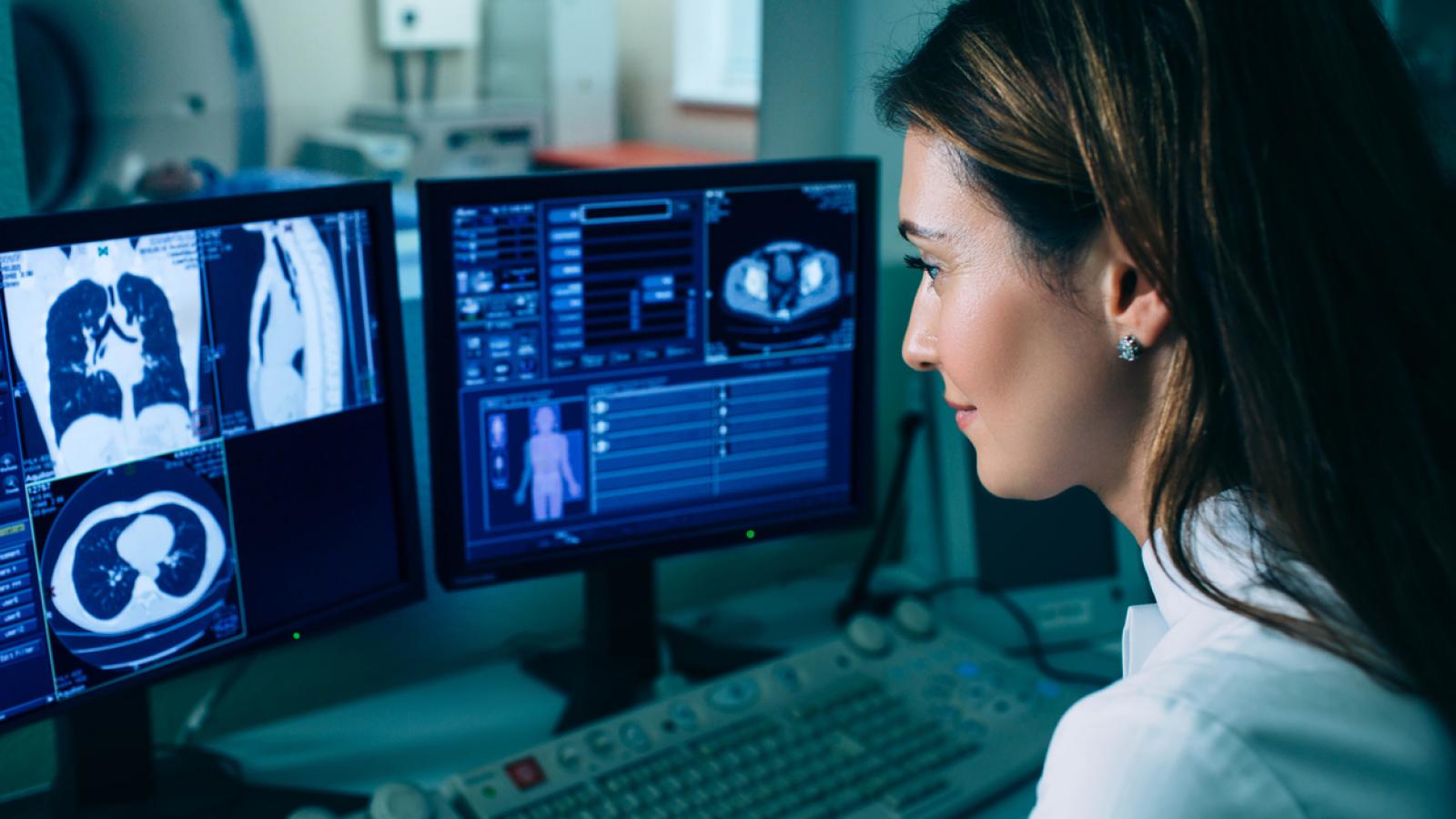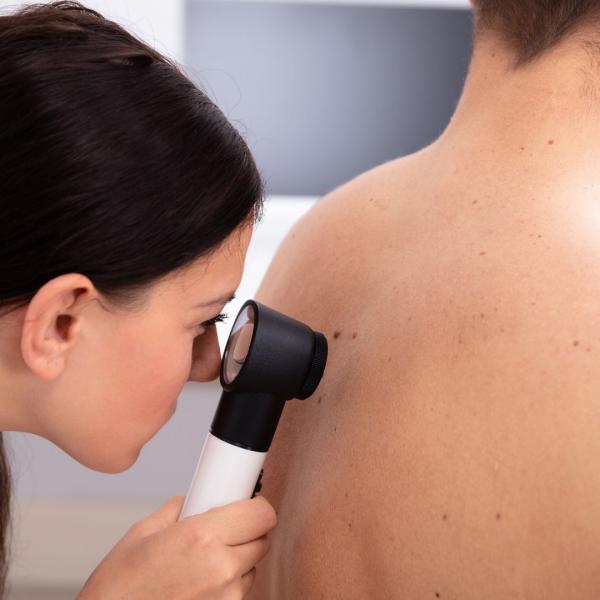Tests to diagnose and stage melanoma

Excision biopsy
If your doctor suspects melanoma, the mole will be removed. The mole tissue sample is examined in the laboratory by a doctor called a pathologist. The pathologist can tell if the mole is cancerous or not. If melanoma skin cancer is diagnosed, the biopsy can also give more information about the cancer.
The pathologist will measure the thickness (depth) of the melanoma to see if the cancer cells have spread into the deeper layers of your skin. This is called the Breslow thickness.
If the depth of the melanoma is less than 1mm, it is called a thin melanoma and you have an excellent chance of a complete cure.
If the melanoma has grown into the deeper layers of the skin, you may have more tests to find out the size of the cancer and if it has spread to other parts of your body. This is called staging.
Staging is important as it helps your medical team decide on the best treatment for your cancer.
Staging tests for melanoma include:
- Sentinel node biopsy: Injecting a radioactive liquid that will show up lymph nodes that have melanoma cells. It can tell if the melanoma has spread or not
- PET scan: A radioactive injection that will show up any cancer spread to other parts of your body on a scan picture
- CT scan: A special type of X-ray to give a picture of the tissues inside your body
- Ultrasound scan: A device like a microphone passed over your skin to look at your lymph nodes and soft tissues
- MRI scan: This is a scan that uses magnetic energy to build up a picture of the tissues inside your body. During the scan you will lie inside a tunnel-like machine
- Bone scan: A radioactive injection that can show areas of abnormal bone on a scan, which may be caused by cancer
Read more about staging melanoma.

Genetic mutation testing
Your tumour may be tested for gene changes (mutations). Gene mutations can mean the cancer will respond well or less well to certain treatments.
For more information
Phone
1800 200 700



